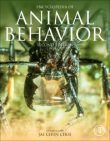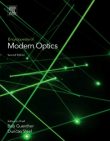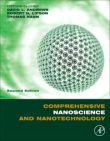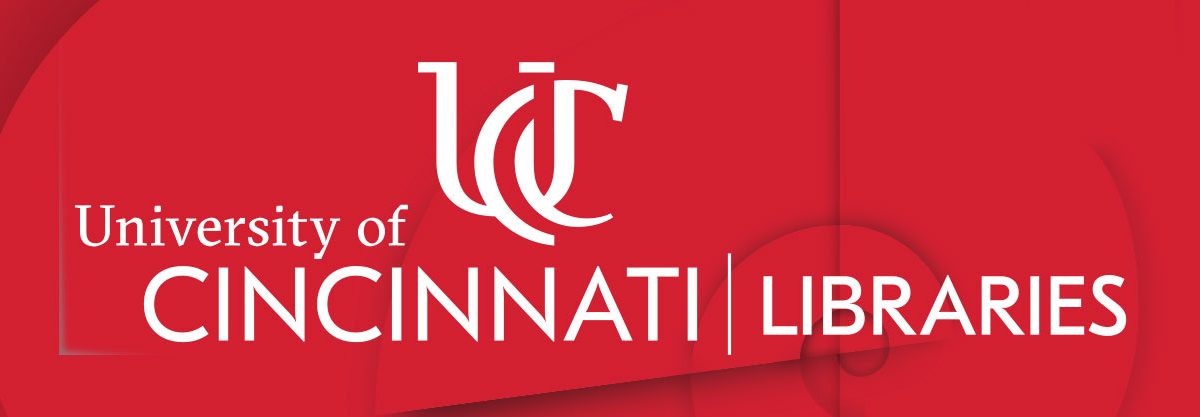While the library’s physical locations are closed, the University of Cincinnati Libraries remains available online to support students, faculty and researchers with their work.

While the library’s physical locations are closed, the University of Cincinnati Libraries remains available online to support students, faculty and researchers with their work.

 Good news! We have expanded access to online encyclopedias & compendiums on some major science & engineering topics.
Good news! We have expanded access to online encyclopedias & compendiums on some major science & engineering topics.
The UC Science & Engineering Libraries have added several brand-new and updated online reference works from ScienceDirect / Elsevier. Enjoy these new resources for extensive information on science and technology topics, including details on current discoveries and research.
To locate many useful science & engineering resources for classes and research, please check out our updated Sciences library and CEAS Library websites. For help, contact Ask-A-Librarian or Ted.Baldwin@uc.edu . Thanks!
 Comprehensive Biotechnology (3rd edition) 2019
Comprehensive Biotechnology (3rd edition) 2019
— one-stop shop on all aspects of biotechnology (4,800+ pages), including scientific fundamentals, engineering considerations and applications in industry, agriculture, medicine, the environment, socio-economics and government regulatory overviews.
 Comprehensive Nanoscience and Nanotechnology (2nd edition) 2019
Comprehensive Nanoscience and Nanotechnology (2nd edition) 2019
— 1,800+ pages detailing every aspect of this growing field, including the latest updates on biological devices, nanomaterials, nanochemistry, nanofabrication, and applications of nanotechnology.
Additional NEW encyclopedias:

Welcome back from Spring Break! While all library physical locations are closed, the University of Cincinnati Libraries remains open online and ready to support teaching, learning and research.
During this time of social isolation, libraries play an important role as a provider of resources and information expertise. UC Libraries’ online presence provides access to the services, resources and people to enable research and scholarly work.
Today, we are pleased to launch a new, specially designed landing page – https://libraries.uc.edu/online.html. This page serves as a portal to access key online library resources such as databases, e-journals and research guides, as well as to free information resources from global cultural and heritage organizations. Users can ask reference or research questions through Chat, e-mail or direct contact to a subject librarian or staff member. The page also offers direct search of the library catalog, and links to key online services such as Interlibrary Loan to request e-resources and how to connect from off campus. We will update this portal page as we continue to transform many of our services into the online environment.
As the library locations remain closed, users are encouraged to keep all library materials. Due dates have been extended and fines will not be incurred for UC, OhioLINK or Interlibrary Loan items. Please do not leave items outside of the library.
The University of Cincinnati Libraries continue to work toward our mission to empower discovery, stimulate learning and inspire the creation of knowledge by connecting students, faculty, researchers and scholars to dynamic data, information and resources.
Take care and stay well. We look forward to the day when we can work with you all in person again, but in the meantime, please work with UC Libraries online.
Xuemao Wang,
Vice Provost for Digital Scholarship and Dean and University Librarian

Clermont College Library welcomes a new Library Director, Catie Carlson!
Catie comes to UC Clermont from Tiffin University’s Pfeiffer Library where she served in various capacities, including Library Director. Her educational background includes a Master of Library & Information Science from Kent State University and a Master of Education from Tiffin University. She is currently studying adult learning and leadership at Kansas State University.
Catie’s role will provide much needed leadership and vision for the future of the library. Catie’s experience in academic libraries, teaching, and library services ensure that the Clermont College Library will continue providing excellent support to the college community.
I am very excited to welcome Catie and look forward to her leadership in the library and at Clermont College. Please join me in welcoming Catie!
In order to protect our community, the Clermont College Library is closed. However, that doesn’t mean there are no resources for students and faculty.
UC Libraries has resources available online 24/7 including video sources, eBooks, and, of course, Summon. Just don’t forget off-campus access to these materials requires extra steps for authentication. Now may also be the perfect opportunity to explore open educational resources.
If your course has an information literacy or research component, the library already has many resources available to support you and your students online. Check out some of the resources below:
If you need any assistance using library resources or finding suitable resources for your students, you may still reach the librarians. Faculty, staff, and students can schedule research consultations with us. These sessions will be held by WebEx or by phone. Our email clermontlibrary@uc.edu is also always an option.
For more information about how we are supporting our students, faculty, and staff from afar, check out our frequently asked questions page.
Effective 5:30 pm, Tuesday, March 17, the Donald C. Harrison Health Sciences Library and the Henry R. Winkler Center for the History of the Health Professions and will close until further notice.
Library users are encouraged to keep library materials. Fines will not be incurred for UC, OhioLINK or Interlibrary Loan items.
The Winkler Center staff will continue to answer reference and research questions. Please leave a voicemail message at (513)555-5120, or e-mail chhp@uc.edu and they will respond as soon as possible.
For service updates and links to online library resources, check https://libraries.uc.edu/about/covid-19.html. Library faculty and staff are committed to serving our users online as best we can.
In consultation with university administration, and with the knowledge that diligent social distancing is critical in slowing and stopping the spread of COVID-19, we have made the difficult decision to close all UC Libraries locations effective 5pm, Monday, March 16 until further notice. The only exception to this will be the Donald C. Harrison Health Sciences Library (HSL), which at this moment will remain open ONLY for College of Medicine students participating in testing; however the situation remains fluid, so there may be changes to HSL hours and availability.
Library users are encouraged to keep library materials. Fines will not be incurred for UC, OhioLINK or Interlibrary Loan items.
For service updates and links to online library resources, check https://libraries.uc.edu/about/covid-19.html. Library faculty and staff are committed to serving our users online as best we can.
For information regarding the availability of UC jurisdictional libraries:
University of Cincinnati COVID-19 information can be found online at https://www.uc.edu/publichealth.html.
Effective Saturday, March 14, 2020, UC will suspend face-to-face instruction, lectures, discussion sessions, seminars and other similar classroom settings, and move to remote instruction. This includes face-to-face library instruction. Face-to-face instruction will resume Monday, April 13, 2020.
Library users are encouraged to keep library materials. Fines will not be incurred for UC, OhioLINK or Interlibrary Loan items.
The Libraries have created a web page to provide library service updates and links to online resources – https://libraries.uc.edu/about/covid-19.html.
For up-to-date university information regarding coronavirus – https://www.uc.edu/publichealth.html
Using the libraries from off campus:
Off Campus Access | View All Library Hours | Access My Library Record | Contact The Libraries |
The UCBA Library is celebrating Women’s History Month and the amazing global contributions of women! This year’s displays (located in Reference area) showcase books covering a wide range of topics in the areas of journalism, science, art, business, politics, law, activism, education, technology, as well as social issues. There’s also a selection of recent fiction titles by women writers.
Stop by and borrow a book from the displays during the month of March! You can also browse the list of books on the Library Displays at UCBA online guide.
Additional Resources for Women’s History Month:
by Lauren Wahman
The access problem to Naxos Music Library has been resolved.